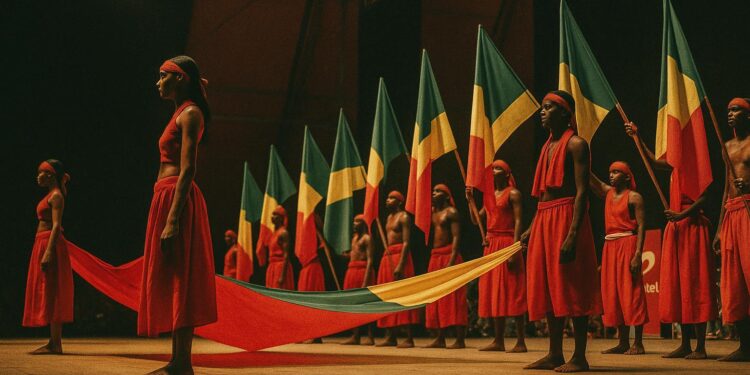A Continental Mandate Finds a Home in Brazzaville
When the Organisation of African Unity adopted, in Port-Louis in 1976, a resolution calling for a biennial festival dedicated to the safeguarding of African musical heritage, few delegates imagined that Brazzaville would eventually become its permanent stage. After early consultations with Kinshasa and Antananarivo, the Congo secured hosting rights during the ministerial session of February 1994, a moment steered by Foreign Minister Benjamin Bounkoulou and endorsed by President Pascal Lissouba. That decision, later confirmed by the African Union, entrusted Brazzaville with an initiative that transcended entertainment and was conceived as an act of continental policy.
Music as a Vessel of Heritage and Modernity
The conceptual blueprint drafted by the OAU’s cultural affairs division, and refined in ministerial meetings in 1986 and 1988, framed the festival as a guardian of endangered oral traditions while acknowledging the transformative reach of Afro-diasporic genres from New Orleans to Cape Town. UNESCO’s Atlas of the World’s Languages in Danger warns that intangible cultural assets disappear at alarming speed; the same logic applies to musical idioms. FESPAM thus responds both to nostalgia and to the dynamism of African creativity, offering a curated space where traditional ngoma ensembles share billing with afrobeats chart-toppers.
Economic Resonance Beyond the Stage
Government planners underscore that, in a sub-region where oil price cycles create fiscal volatility, the creative economy represents an under-exploited diversification tool. The last pre-pandemic edition in 2017 attracted nearly 3 000 accredited participants and injected an estimated 7.5 million US dollars into local services according to the Ministry of Culture. Hoteliers anticipate occupancy rates exceeding 85 percent during festival week, while Brazzaville’s nascent start-up community eyes digital ticketing and streaming applications as new revenue frontiers. The African Development Bank, in a 2022 brief on cultural industries, confirmed that every cultural job tends to generate 1.8 ancillary positions—a multiplier relevant to Congo’s youthful labour market.
Soft Power and Regional Image Management
For President Denis Sassou Nguesso, hosting the festival complements Congo’s longstanding mediation profile, from the International Conference on the Great Lakes Region to climate diplomacy over the Congo Basin. As one senior official in the Ministry of Foreign Affairs observed, the festival is “our most melodic diplomatic note”, a formulation that echoes Joseph Nye’s soft-power thesis. The African Union Commission regards FESPAM as a flagship that aligns with Agenda 2063’s aspiration for ‘An Africa with a Strong Cultural Identity’, while foreign missions in Brazzaville discreetly welcome a public diplomacy forum that is unburdened by hard security agendas.
Navigating Logistical and Public-Health Variables
Organisers nevertheless face operational imperatives. The 2025 edition coincides with infrastructure upgrades funded through a bilateral facility with China, requiring synchronisation to avoid construction bottlenecks. On the public-health front, the Ministry of Health is finalising a surveillance protocol with the Africa Centres for Disease Control in light of lessons learnt from COVID-19. The aim, officials say, is to deliver a ‘green-zone’ festival that reassures performers, sponsors and tourists without dampening the festive ambiance that has long distinguished FESPAM from other continental gatherings.
Charting Prospects for 2025 and Beyond
Looking ahead, cultural economists argue that FESPAM’s impact will be measured less by headliner profiles than by its ability to embed skills within local ecosystems—sound engineering, copyright management, tour logistics—that persist after the final encore. Discussions are underway with the International Federation of Musicians to stage capacity-building workshops, while the African Export-Import Bank explores guarantee schemes for regional music ventures. If realised, these initiatives could substantiate Ambassador Pascal Gayama’s vision of music as both a covenant of peace and an engine of solidarity. In that sense, the forthcoming edition represents not merely a milestone in festival chronology but a test of how Congo, and by extension the African Union, can translate cultural capital into sustainable development.











































